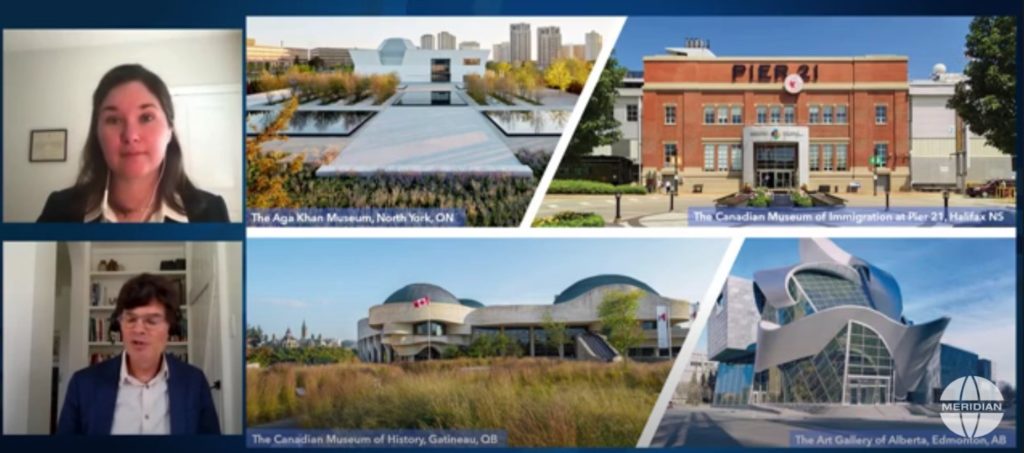Watch their presentation, The Global Engagement of Museums in Canada, below.
Whether through exhibitions, programming, research, or fieldwork, museums are embedded within global webs of relations. As intrinsic actors in the civil society networks of culture and diplomacy, we must also grapple with the long history of museums as colonial institutions (Clifford 1997, Phillips 2011, Lonetree 2012). But, how exactly do museums negotiate institutional and government policies within the context of their global work? What are the impacts and benefits—to the institution and state—of these international endeavours? And, how do museum professionals perceive their involvement in international cultural work and their role as global agents?
Click here to view the 2021 Global Humanities Symposium on YouTube

On July 16 2021, Jeff Brison and Sarah E.K. Smith confront these questions in their presentation “Observing Cultural Diplomacy: Canadian Museums and Global Engagement, 2009-2019” for the 2021 Global Humanities Symposium: Observing Cultural Diplomacy, organized by the Meridian International Center and the National Endowment for the Humanities. Their talk focuses on ten museums in Canada, ranging in size from municipal institutions like the Ottawa Art Gallery, to national institutions such as the Canadian Museum of Immigration at Pier 21, as well as museums with international stature such as the Montreal Museum of Fine Art and National Gallery of Canada. This study, now published in a report, parses the dynamics of museums’ global engagement, exploring the ways that these institutions have been engaged globally in the last decade. Drawing on Mitacs-supported fieldwork and research undertaken in 2019 by an interdisciplinary team of students, scholars, and practitioners, Brison and Smith argue for a new understanding of museum diplomacy in Canada, revealing a range of activities that comprise institutions’ global engagement. Their discussion points to innovative practices that demonstrate museums’ unique—and largely unrecognized—contributions as significant non-state actors in global affairs.


